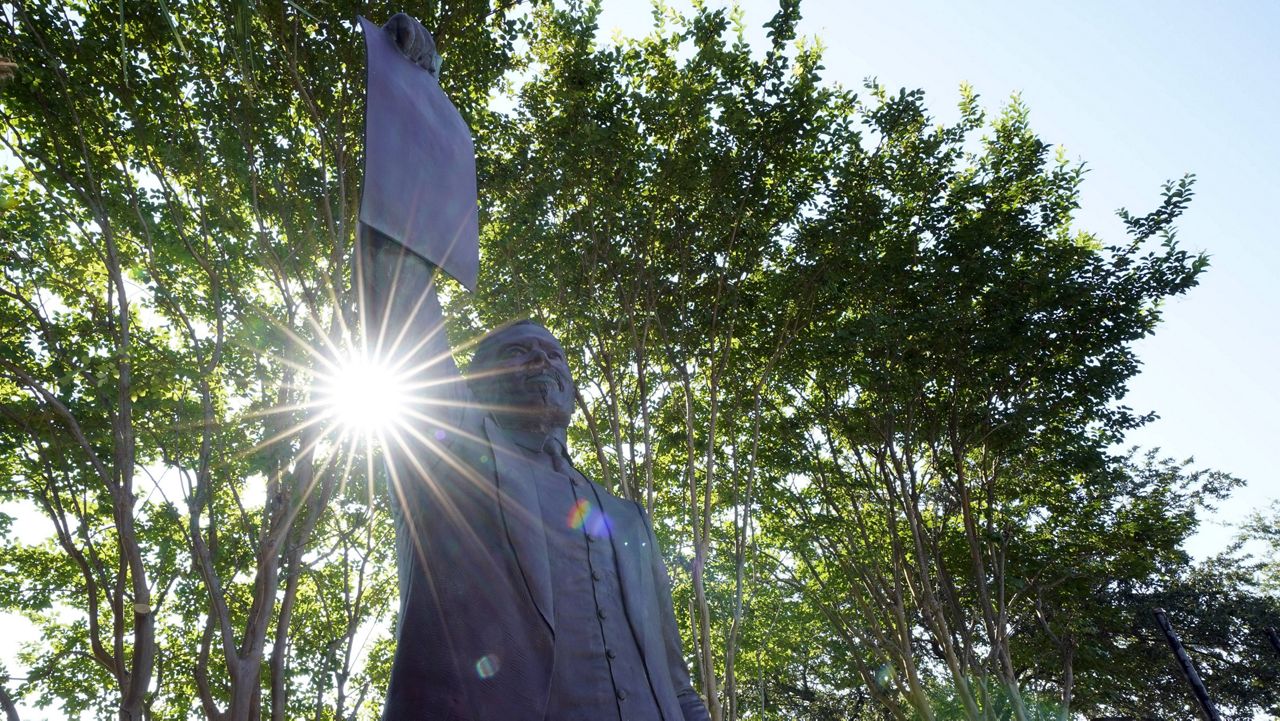TEXAS — The Lone Star State became the first in the nation to recognize Juneteenth as a state holiday. Now, more than 40 years later, the oldest celebration marking the day when the last enslaved African Americans in Galveston learned they were free has become a federal holiday.
“Juneteenth is the living symbol of Lincoln’s promise that this nation, under God, ‘would have a new birth of freedom,’” said Rep. Sheila Jackson Lee (D-Texas) after H.R. 1320 passed in the House. “The federal government will join 47 states in recognizing as a holiday Juneteenth, the day that has been celebrated by African Americans for 156 years and has been called rightly as 'America’s Second Independence Day.'”
On June 19, 1865, Gordon Granger, a Union general, arrived in Galveston, Texas, to issue General Order Number 3, which read:
"The people of Texas are informed that, in accordance with a proclamation from the Executive of the United States, all slaves are free. This involves an absolute equality of personal rights and rights of property between former masters and slaves, and the connection heretofore existing between them becomes that between employer and hired labor. The freedmen are advised to remain quietly at their present homes and work for wages. They are informed that they will not be allowed to collect at military posts and that they will not be supported in idleness either there or elsewhere."
This news, which was delivered to roughly 250,000 slaves, came more than two years after the Emancipation Proclamation ended slavery in the Confederacy. On Sept. 22, 1862, President Abraham Lincoln issued the proclamation declaring that, as of Jan. 1, 1863, all enslaved people “shall be then, thenceforward, and forever free.”
“For Texas, Juneteenth has a strong significance because of what took place on that day in Galveston,” said Marquel Sennet, Southern University at Shreveport assistant professor of history. “That’s when many people found out that they were free. So, of course, it was a day of joy and jubilation.”
The celebration of free men and women sparked in 1866 what was initially called “Emancipation Day” and what would later become Juneteenth. Former slaves gathered together for prayers, parades, festivals and more events that included singing and reading the proclamation, which eventually led Texas to introduce legislation in 1979 to make it a state holiday, which became official on Jan. 1, 1980.
“To me, what’s even more significant than that actual day is what actually took place in the days, the weeks, the months and the years following Juneteenth,” said Sennet. “When you look back at our historically Black colleges in Texas and across our country, many of them were founded in those days after Juneteenth when Black people didn’t really have too many resources. Many didn’t know how to read, write, and they were able to use the limited resources they had to create their own communities and to invest in the people who have been limited for so long in our country.”
It wasn’t until January 1865 that both houses of Congress passed the Thirteenth Amendment to the U.S. Constitution — the abolition of slavery in the aftermath of the Civil War:
“Neither slavery nor involuntary servitude, except as a punishment for crime whereof the party shall have been duly convicted, shall exist within the United States, or any place subject to their jurisdiction.”
For many, today’s celebration of Juneteenth mirrors events similar to Independence Day. But for Sennet, that holiday pales in its importance to Black people.
“The reality of it is, on the Fourth of July, many of our ancestors — African American — were not free,” she said. “They were enslaved people in this country who were brought here against their will. So, that’s not a time for us to celebrate what took place on July 4, because we weren’t free. But Juneteenth is a time for us to take pride in what we were able to overcome in such a difficult time.”
In Galveston, the birthplace of Juneteenth, a statue of Granger’s order memorializing the momentous day sits. It’s a permanent reminder to residents and visitors of what took place 156 years ago on that summer day in June.
“Of course, after Juneteenth, we still had struggles, we still had to face racism, we still had to fight for the basic rights this country is supposed to provide to all of its citizens,” she said. “So, when we look at our history, sometimes we look at the pain, but there’s so much pride in the days after Juneteenth. That’s when we see our first African American elected officials, our lawmakers, we see the Black church began to grow, and we see schools that were created by us for us to educate our people. So, we should celebrate the pride of being a resilient group of people who were able to do so much and accomplish so much with so few, little resources that were given to us.”



